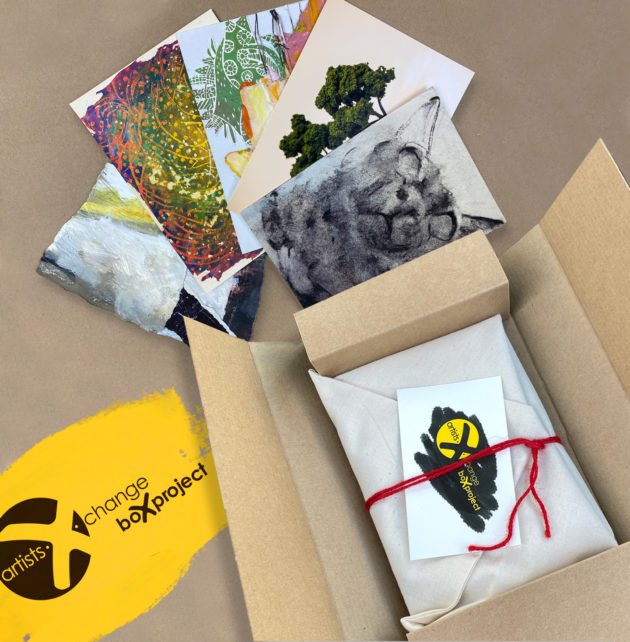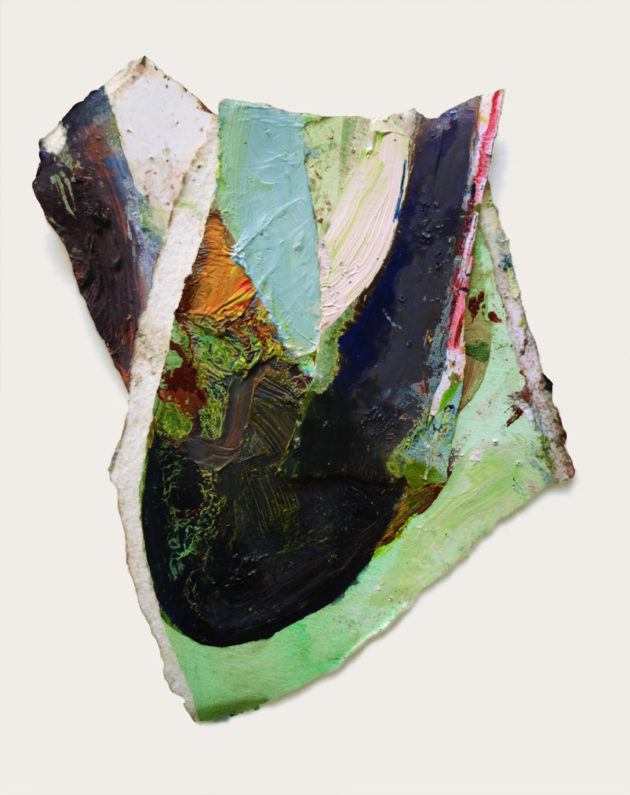The Lilith Blog 1 of 2
December 23, 2020 by Eleanor J. Bader
Art and Aid: an Interview with Margot Spindelman

When crises hit — whether fire, flood, or global pandemic — righteous people mobilize by bringing food, water, clothing, medical care and emotional support to those in need. These mutual aid networks often do what governments do not: offer concrete help to communities long ignored by public agencies.
Not surprisingly, COVID has led to a surge in such networks, with individuals in every part of the country phoning isolated seniors, feeding the hungry, tutoring kids and helping society’s most vulnerable populations with everyday chores.
Crises also inspire art. While some have chosen to create public installations or murals, the 7-member New York City-based artists-X-change has instead opted to use members’ talents to raise funds for the Brooklyn Arts Council. The 50-year-old multi-pronged Council runs art classes, gives grants to local artists and grassroots arts organizations, and, pre-pandemic, ran programs for public school children in grades K-12. Brooklyn Arts Council also serves as a fiscal sponsor for a host of emerging cultural projects throughout the borough.
Lilith’s Eleanor J. Bader spoke to Artists-X-change founding member Margot Spindelman about the BoX Project, the organization’s effort to raise revenue for the Council.
The name describes the campaign: group members have created 20 boxes, each containing five small pieces of original art that are exchanged for a $1000 donation to the Brooklyn agency.
Eleanor J. Bader: How did the idea for the artists-X-change and the BoX Project develop?
Margot Spindelman: When the COVID lockdown started in March, the closures unfolded really quickly, and most artists I knew understood how damaging the pandemic would be for the arts community and for individual artists. I put out the initial call on social media and invited artist friends to come together and talk. I also asked the people I reached out to to invite their artist friends and we scheduled a time to talk on Zoom. The plan was to meet and discuss what we could do to help people in the arts community at large. A lot of untenable ideas were thrown out but Nina Meledandri, who became a core member of the group, told us that when she was a child in the 1960s, a box of artwork would be mailed to her home once a month. We loved the idea of sending culture through the postal service but, when we started to work out the kinks of what we could actually do, partnering with an established organization made better sense. We all knew Brooklyn Arts Council and knew people who’d received grants or had received grants ourselves, so they seemed like a great match for us, a perfect fit.
When we conceived the BoX Project, we were really ambitious and thought we’d get 50 artists to donate 20 pieces of art. As we moved forward with the idea, we realized that a pandemic coupled with an economic crisis would make this impossible, and we settled on 10 artists contributing 10 pieces each. We made 20 boxes as a fundraiser for Brooklyn Arts Council, nine of which have already been sold.
EJB: Were those of you who became artists-X-change friends or colleagues before the pandemic?
MS: Some yes, some no. One person saw something on Facebook and got in touch. A few of us had been in the Governor’s Island Art Fair, now called Portal, over the years, and we knew each other well. We knew Jack Robinson and Nix Laemmle, the organizers of the Governor’s Island Art Fair, and invited them to come and talk to us and help us refine both the idea and the process. They both subsequently contributed work to the Project.
EJB: Tell me about the kinds of art that can found in the boxes.
MS: It’s really varied. Nina Meledandri uses handmade paper and makes an exquisite silvery statement with oyster shells and a ring sewn around them. Ellen Blum’s acrylic/mixed media paintings explode with exuberant color; Michael Davis’ black-and-white drawings show his gorgeous touch; Christina Massey’s pieces are surprising intersections of paint, collage and thread; and Jada Fabrizio’s work is about planetary degradation and feels both ominous and gorgeous at the same time. Jack Robinson’s nearly cubist photographs are assembled fromphysical scans; Nix Laemmle paints elegant, almost liquid fields of blue, green, and white; and Abby Goldstein uses watercolor, ink and gouache to create labyrinthian, organic patterns. Randall Stoltzfus uses gold leaf and brilliant blues to make pieces that shimmer with light and I work on paper, accumulating marks using oil, tearing the paper, then gluing it back together, sort of how we glue ourselves back together after a crisis or trauma.

EJB: How do you choose what goes into each of the 20 boxes?
MS: We curated each one pretty carefully and created the packaging ourselves because we did not want to burden the Brooklyn Arts Council. We wanted the Council to be the beneficiaries and we made sure that this was not making more work for them. Each BoX is unique, with a wide mix of pieces. The art is carefully placed in a muslin sleeve with each artwork in a separate glassine envelope with the artist’s bio card.
EJB: What has it meant to you to be part of this collective effort? Has your Jewish upbringing informed your participation?
MS: We continue to meet once a week on Zoom and it has been an extraordinary experience, a lifesaving experience, to be in this group. We’ve all been through things: joblessness for some, relocation for others, and illness. One group member had family in California who were impacted by the fires. But our difficulties are always met with humor, empathy, and of course, cats. It’s been amazing to collaborate about what we want to see in the world with other artmakers. I grew up in a conservative Jewish American home and, even though I am now an atheist, the concept of tikkun olam and having a clear moral framework, is always there for me. The idea that the world is falling apart and that we have an obligation to try to put it back together is at work for me in The BoX Project.
EJB: Is a second BoX Project in the offing?
MS: I hope so. We hope to do another series and plan to reach out to additional artists. Our goal is to share work that improves a small corner of the universe. We’re not yet sure what this will mean but we agree that it’s been really rewarding to be part of this network of deeply lovely people.
EJB: Have you gleaned other lessons from participating in artists-X-change?
MS: This may not be a lesson, but over the past months we’ve seen countless articles in the press proclaiming that New York City is dead and that people are deserting the city and moving to smaller and safer places. This is not true for everyone.
One of the joys of the BoX Project has been being a gardener and planting new artistic seeds in Brooklyn and watching them flourish. We’re obviously not all moving away. We’re here, working from the ground up to keep our neighborhoods going. Artists-X-change is the embodiment of that sentiment. I’m glad that we’re here. We intend on continuing to help other artists and help our communities.
 Please wait...
Please wait...